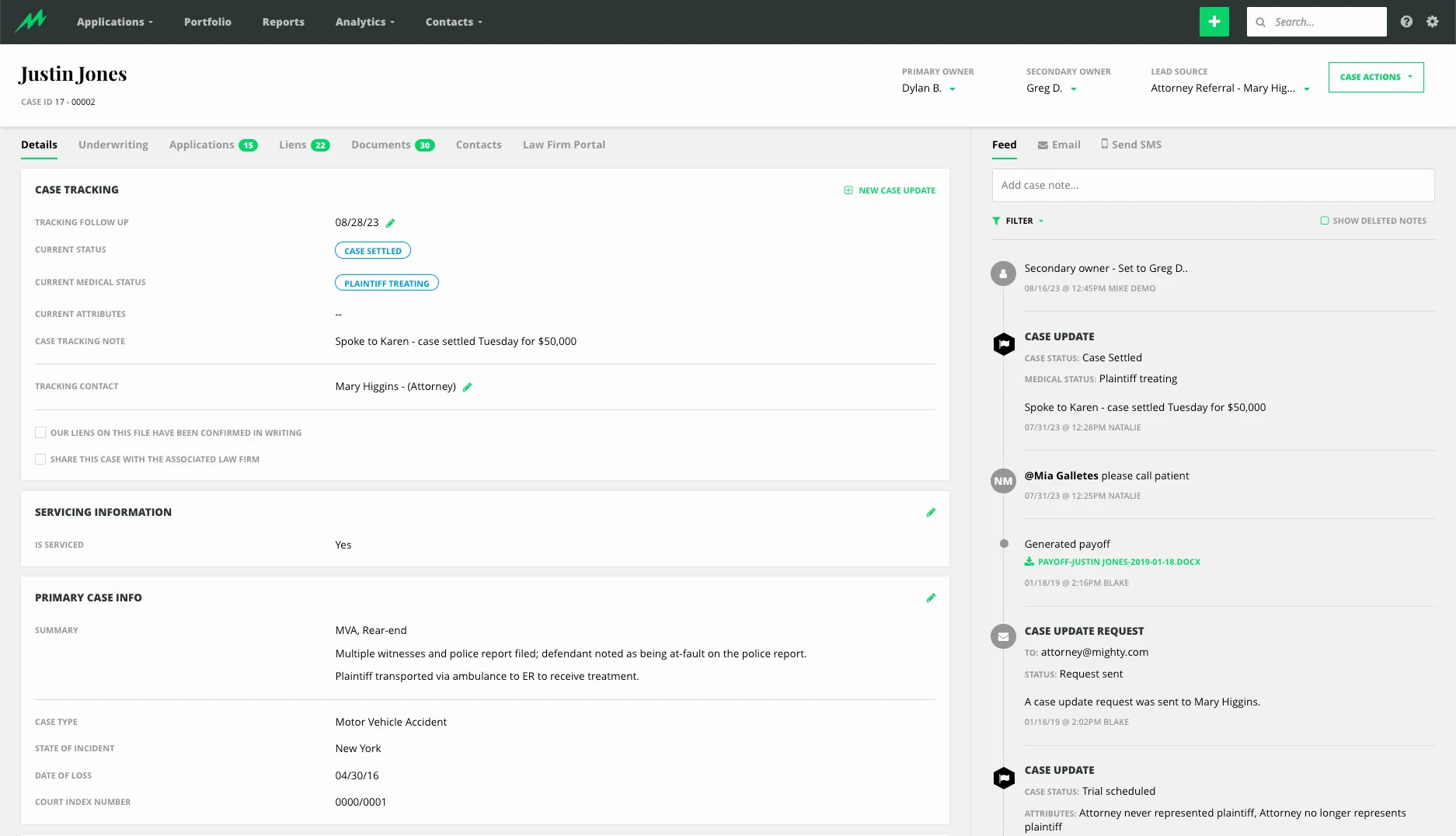Modern tools for the
Personal Injury Industry
Mighty offers a suite of solutions that increase efficiency, streamline communication and collaboration, and help funders and medical providers grow their businesses in the personal injury space.

Discover our Suite of Solutions

Mighty's software for medical and plaintiff funders has powered over $2.6 Billion in funding by driving efficiency, streamlined communication, and better decision making.

Mighty enables medical providers to share bills, records, and more with law firms in a secure, HIPAA-compliant Portal that's easy for lawyers and case managers to use.


From immediate cash flow solutions to customized financing structures, Mighty provides the financial backing that supports your business growth.

Request Demo
$2.6 Billion in medical and plaintiff funding on Mighty’s platform



